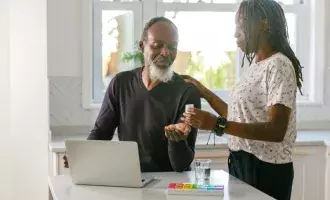In the second of the two articles on a once-in-a-lifetime opportunity to radically rethink how we deliver services to citizens, we look to a data-driven future and changing citizen expectations.
Using data gained through touch points with citizens to re-design services, improve the information provided, and identify the vulnerable and intervene should be the Holy Grail of government services because it reduces waste, improves outcomes for both sides and, best of all, transforms lives.
However, while the balance between privacy and facility has shifted, as live streaming medical consultations, remote monitoring, accelerated use of chatbots for routine enquiries and so on show, citizens are likely to (quite rightly) be cynical given the increasingly frequent stories of data misuse that emerge in the media.
Trust and security will play a huge part in how that tension plays out. Trust would quickly unravel with the first data breach or inappropriate usage by any actor. Necessity may well drive an increased comfort with data sharing for the common good – the trick would be to demonstrate the benefit.
The potential is huge. When it’s done well, centralised and digitised citizen data can achieve significantly better outcomes. Firstly, by helping councils to understand citizens better. Secondly, by communicating with citizens in a timely and constructive fashion, it can make services more efficient, more effective, more user-focused – giving the citizen what they want / need, when they want / need it.
Estonia often makes headlines for its pioneering approach to digitising public services. Its economy is bound to tech, its government is digital, and most of its services either are or can be provided electronically - the only public service not available online is marriage. The Estonian Government has worked to build trust step by step, service by service, communication by communication. For citizens, their trust is not just in how the Government uses citizen data but also in the benefit of iterative design processes as it continues to improve its services.
Increased citizen expectations
We’ve adapted very quickly to a new way of working and living. While it’s been bumpy, when there is no plan B, it’s been remarkable how quickly behaviours have changed. As we lift the lockdown, one of the emerging themes is going to be how we further adapt services to a new set of expectations.
One that has stood out is the expectation of what can be delivered digitally. We’ve seen health services being delivered remotely, schooling shift online and justice systems go digital. When the model has shifted from pull to push, digital services have emerged that have provided convenient and easy access for citizens. These will pave the way for further digitisation and a ‘new normal’ of citizens’ expectations.
Just as we’ve seen with banking, retail and healthcare, digital public services are now the baseline. How can we rethink the delivery of local services in the same way that the private sector has had to? Might this involve thinking about new partnerships and ecosystems? And what learnings can we take from other industries to ensure that we don’t exclude people from digital public services? If there’s one critical element to embracing digital in citizen experience, it is making sure that the vulnerable are not left behind in the revolution.
Delivering mission impossible
The imperative is clear – and involves far more than citizens’ expectations of service. We know that, when we apply technology in the right way, we drive productivity and value for the public pound. This driver for quality and efficiency is at the heart of our civil service – which, despite the challenges and changing appetites of government, still seeks to do the best it can for the people of the UK. And new solutions must not complicate that.
As we emerge from the pandemic, local government is going to need to reinvigorate and accelerate its transformation plans to prepare to operate in a very different world. It will undoubtably need to do this by looking for ways to become even more efficient, adopting more agile models that rely less on people, and putting digital technologies at the heart of this change.
Value for money will take on a whole new meaning in an economy struggling to recover from the impact of the Coronavirus on employment and industry. Digital technologies create opportunities to explore new models for providing services, improve management of resources through smarter spending, and link the money invested in programmes and services to the outcomes they produce for citizens, boosting accountability and trust.
We are at a pivotal point in local government. Do we continue to evolve? Or take this opportunity to revolutionise how we deliver to the communities we serve?

Simon Freeman
Managing Director, Capita Local Public Services
Capita Local Public Services works in partnership with local authorities, and the education and health sectors, to improve resident and user experience, save money and transform services. Previously, Simon was responsible for Capita’s DWP contracts and has worked in a number of private and public service delivery organisations over the last 15 years including BT and Serco.







